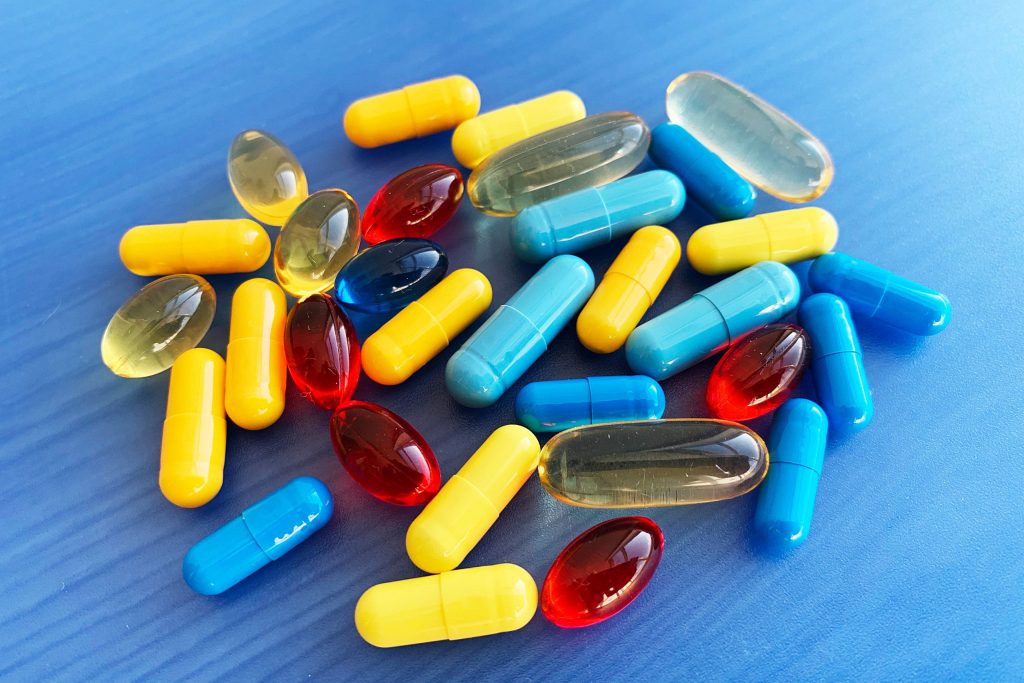As you age, it’s important to be aware of the changes in your body that can affect your sexual function. Learn how to deal with these changes so you can enjoy a healthy sex life for years to come.
Erectile dysfunction (ED) is a common problem that can happen to men of all ages. It’s caused when arteries or nerves in the penis don’t get enough blood to maintain an erection.
1. Exercise
Exercising is a great way to improve your sexual function. Exercise increases testosterone levels, which naturally boost libido. It also helps control insulin levels, which can affect sex hormones.
It reduces stress, which can lead to a lack of arousal or orgasm. It also increases feel-good hormones that can help battle the negative effects of short-term and chronic stress on your sex life.
Physical activity also improves blood flow, which is important for your sex organs and can help you get aroused more quickly. The Mayo Clinic recommends a vigorous workout that raises and sustains your heart rate.
Research suggests that men with erectile dysfunction are more likely to be physically active than those who aren’t, and exercise can help them have better erections. Regular exercise can also decrease the risk of other health problems, including heart disease and diabetes.
Researchers have found that women who participate in a vigorous workout, such as running or dancing, increase their genital blood flow and arousal. They also experience higher sex satisfaction and have more orgasms.
It can also strengthen a woman’s pelvic floor, which is important for the many positions that require her to lift her partner up and down. It can also improve the quality of her sex by increasing her confidence and enhancing her sense of control.
Studies have also shown that women who are regularly involved in a healthy weight loss program, such as walking or swimming, experience more sexual drive and endurance.
If you’re struggling with sexual dysfunction, talk to your doctor about possible ways to deal with it. They can refer you to a specialist who can help you manage the problem. You may need to take medication, or you can talk with a counselor to address mental issues that may be contributing to your sex difficulties.
2. Eat a Healthy Diet
Eating a healthy diet is one of the best ways to improve your sexual function. A diet that is rich in vegetables, fruits, whole grains, and lean proteins will provide your body with the nutrients it needs to be healthy.
Aside from a variety of vitamins and minerals, a nutritious diet also provides essential amino acids that the body needs to produce hormones and other important bioactive compounds for healthy sexual function. To ensure your body is getting an adequate supply of these amino acids, try to include a variety of protein-rich foods in your diet, including beans, nuts, lean meats, poultry without skin, and seafood.
Vitamin C-rich fruits, like strawberries, may help boost sex drive by increasing blood flow to the penis. They may also release the hormone oxytocin, which increases sex desire and enhances orgasms.
Nuts are another great source of nitric oxide, which relaxes blood vessels to promote more arousal and improve erections in the bedroom. According to a 14-week study, men who added nuts to their diet reported significantly improved sex drive and quality of orgasms as compared with the control group that did not eat them.
Fruits and vegetables contain nitrates, which help manage blood pressure and improve circulation. Adding more green vegetables to your diet can improve a number of health conditions, including heart disease, diabetes, and erectile dysfunction.
In addition to nitrates and other nutrients, green vegetables are full of antioxidants, which keep your arteries strong and protect against heart disease. These anti-inflammatory phytonutrients can also help to improve your sex drive by promoting the production of blood proteins that aid the flow of sperm, which are necessary for sexual reproduction and erectie-apotheek24h can help.
3. Sleep Well
Sleep is a key component of sexual function and a lack of it can negatively impact your sex life. It’s been linked to decreased libido, erectile dysfunction, and energy levels. It’s also associated with depression and anxiety, which can lead to emotional and relationship problems.
According to the National Sleep Foundation, adults should get seven to nine hours of sleep per night. Getting enough sleep improves your mood, brain and heart health, immune system, creativity, and vitality.
Getting adequate sleep also helps you maintain your body’s natural circadian rhythm. When you’re in sync with your body’s natural sleep-wake cycle, it’s easier to get into a routine and feel refreshed.
A recent study found that women who slept more than eight hours had stronger sexual desire and were more likely to engage in partner sex regularly. The same study also showed that men who slept less than five hours a night had lower testosterone levels, which can cause low libido.
If you’re struggling to get the recommended amount of sleep, here are a few tips that can help you fall asleep and get the rest you need.
Keep a Regular Schedule and Have a Fixed Wake-Up Time: Many people struggle with getting the right amount of sleep because they have irregular sleep patterns or change their wake-up times frequently. Having a regular sleep-wake schedule normalizes your body’s natural rhythm and sets the tone for your entire day.
Another helpful tip is to avoid electronic devices in the bedroom (TVs, computers, and cell phones). The noise and light from these products can disturb your sleeping pattern.
Having sex and masturbation before bed can also reduce stress, one of the main causes of insomnia. The activity can also raise your body temperature, which can make it easier to fall asleep.
4. Reduce Alcohol Intake
If you’re struggling with erectile dysfunction (ED), it’s important to cut back on your alcohol intake. Even moderate alcohol consumption can negatively impact your sex drive, which can lead to other health problems in the long run.
Reducing your alcohol intake can also improve your libido and make it easier for you to enjoy sex again. In fact, a 2009 study showed that men who drink in moderation had 30% fewer erectile problems than those who drank little or no alcohol at all.
However, if you’re concerned about the amount of alcohol you’re drinking, it’s best to talk to your doctor about how much you should be consuming and what you can do to reduce it. They’ll be able to refer you to support services and help you stay on track.
You can reduce your alcohol intake by putting a plan in place and tracking your progress. Try keeping a log of when you stop drinking or how many drinks you drink on any given day, so you can see your progress over time.
It’s also a good idea to set yourself small, achievable goals. For example, you could cut down your intake by one drink a week. Or you could try doing a month of abstinence, such as Dry January or Go Dry for July.
When you do decide to cut down or stop your alcohol intake, it’s important to take it slow and easy. You might feel some discomfort or cravings after you first cut down or stop your alcohol intake, but those feelings will pass in time.
The body will quickly begin to heal itself after you stop drinking, and your hormone levels will adjust to normal, healthy levels. You’ll experience a temporary decrease in your sex desire during that time, but it’s completely normal to have this feeling. With time, your hormones will get back to their natural state and you’ll be able to have more enjoyable sex again.
5. Quit Smoking
Smoking can have a negative impact on your sex life. It decreases your energy levels and leaves you feeling tired, making it difficult to last long during sex. In addition, it increases your risk of having a heart attack and lung disease.
When you quit, you’ll feel better physically. Your blood pressure, cholesterol, and blood sugar will drop. You’ll also have less risk of developing certain cancers.
In addition, you’ll find your sense of smell and taste improves, so you may enjoy eating more nutritious foods. You’ll also have more stamina to exercise.
Quitting smoking will also lower your risk of a variety of health problems, including heart disease, cancer, and stroke. Studies have found that even the smallest change in your risk of these diseases can save you thousands of dollars per year.
Once you’re ready to stop, you’ll need support and help. You can get assistance from your doctor, nicotine replacement products, or in-person and group counseling.
Your doctor can prescribe medications to help with nicotine withdrawal symptoms and cravings. He or she can also recommend alternative methods, such as hypnosis or acupuncture.
You can also try nicotine patches, gum, or lozenges. These are available over the counter, and some people find them helpful.
In addition, finding ways to cope with stress and anxiety without smoking will be important for your mental well-being. There are many things you can do to relax and unwind, from exercising to listening to music or taking a bath.
When you’re trying to kick the smoking habit, don’t be afraid to ask for help from friends and family. They can offer advice, encourage you, and keep you motivated. It’s also a good idea to find someone who wants to quit too, so you can share the experience and have a support group.




